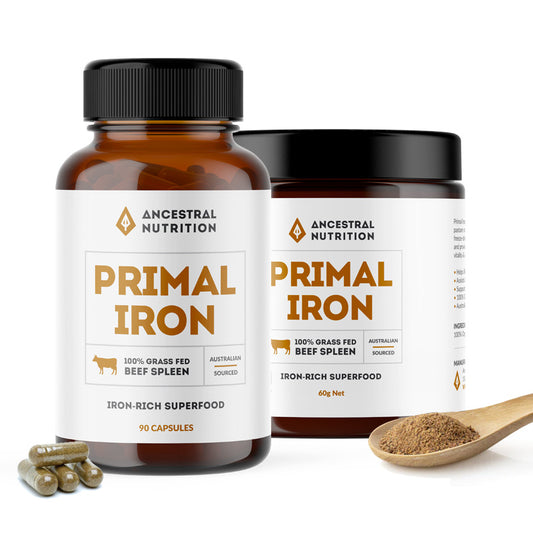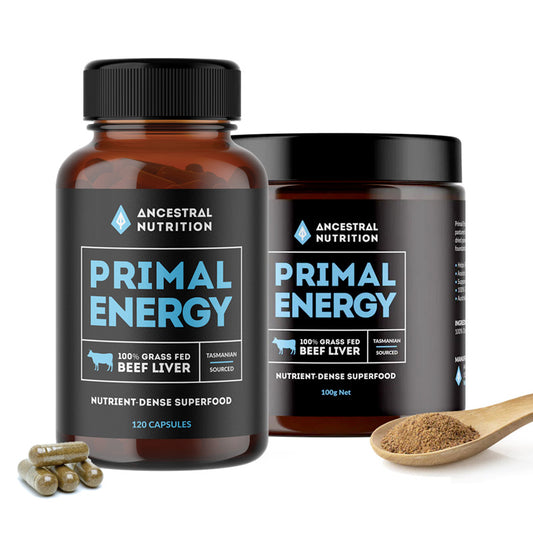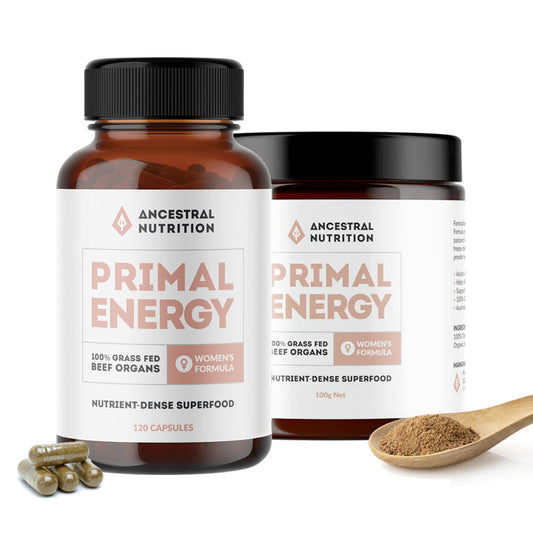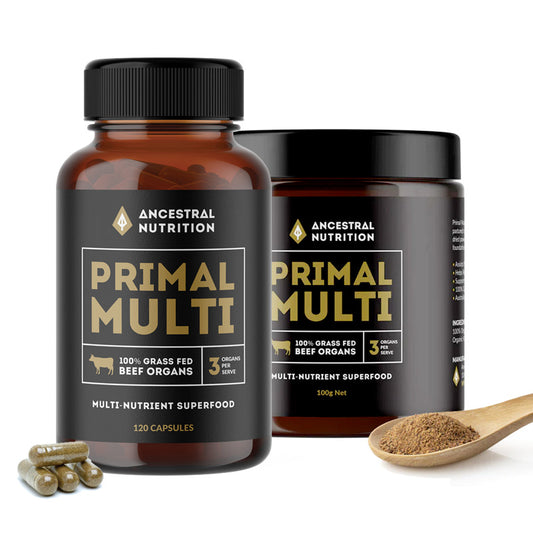Read This if Your Iron Supplement Isn't Working
article by Ancestral Nutrition
Explore natural ways to support your iron intake and energy levels
Iron is an essential mineral that helps your body transport oxygen, supporting energy production, physical performance, and overall vitality. Yet many people feel they’re doing “everything right” and still struggle with low energy—especially when relying solely on synthetic supplements.
Why Iron Absorption Is More Complex Than You Think
Even if your diet includes iron-rich foods, your body doesn’t absorb all of it. The form of iron (heme vs. non-heme), your individual nutrient status, and the presence of co-factors all impact how well iron is absorbed.
For example:
- Heme iron, found in animal-based foods like meat and liver, is more bioavailable than non-heme iron from plant foods.
- Vitamin C, copper, and B vitamins help support healthy iron metabolism.
- Phytates (found in grains, legumes), calcium, and stress may reduce iron absorption.
Why a Whole-Food Approach May Support Better Outcomes
A real-food approach ensures you’re not only getting iron, but the co-factors that help your body use it effectively. Nutrient-dense foods like beef liver, spleen, and other organs naturally provide:
- Heme iron in a bioavailable form
- Vitamin A, B12, folate, and copper — which support red blood cell formation and overall energy
- Did you know? B12, folate, and iron work together in the body to support oxygen transport and energy production.
When Supplements Might Not Be the Whole Answer
Iron supplements can be useful for topping up low levels — but they’re not always well tolerated or efficiently absorbed. That’s why many people explore whole food–based sources to complement their iron-rich diet.
Whole food supplements made from beef organs offer a food-first option for those looking to:
- Support energy and vitality
- Increase intake of naturally occurring iron and supporting nutrients
- Avoid synthetic additives or fillers
If you’re looking for a more natural way to support your iron intake, consider adding nutrient-dense whole foods — including organ meats — to your diet. Whether through food or freeze-dried whole food supplements, this approach may offer a bioavailable, balanced source of iron and the nutrients that help it do its job.
Always consult your healthcare professional before making changes to your diet or supplement routine, especially if you have a diagnosed condition or are managing symptoms like fatigue or low iron.




